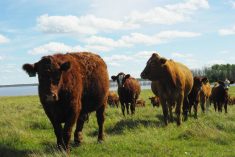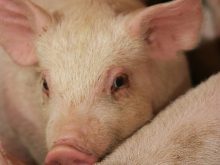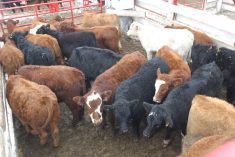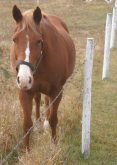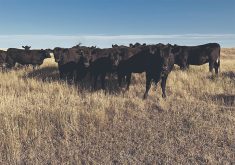Alberta producers and the Israeli government worked together to return the rare breed to its historical birthplace
ABBOTTSFORD, B.C. — A flock of 120 Jacob sheep can be seen grazing the lush grass in a small pasture east of Abbottsford.
By July, they should be grazing pastures in Israel’s Golan Heights.
The flock, owned by Gil and Jenna Lewinsky, has historical and religious significance.
They are first described in the Book of Genesis when Jacob established his own flock of speckled and spotted sheep as payment from his father-in-law, Laban, for farm work.
The sheep lived with the Israelites in Egypt in the time of Moses and came with them during the exodus into the desert. They were dispersed during the Babylonian captivity era and eventually ended up in Spain and Britain, where aristocrats kept them on their estates as a novelty.
Read Also

Beef check-off collection system aligns across the country
A single and aligned check-off collection system based on where producers live makes the system equal said Chad Ross, Saskatchewan Cattle Association chair.
They arrived in North America in the early 20th century and were already considered heirloom sheep.
“They went through their own diaspora, just like the Jewish people did,” said Gil.
Jenna is South African and Gil is a Canadian-Israeli citizen who attended university in Calgary and Toronto, where he studied political science.
They met in Jerusalem, where Jenna was working for the Israeli government and Gil was a journalist at the Jerusalem Post.
They first lived in South Africa and then came to Canada, where they discovered the sheep. Jenna had bunnies and needed a home for the new ones. Someone in Vernon wanted bunnies and mentioned she had Jacob sheep, which might be of interest to a Jewish couple.
They started to research them and decided to build a herd from animals found on farms and at auctions.
Jenna had volunteered with the SPCA and worked in a veterinary clinic in Abbotsford, so she was familiar with livestock, while Gil had to learn how to farm from scratch.
Protecting a rare breed was important to them.
“This is for conservation. We are not planning to make lamb chops here,” said Jenna.
“When we started on the scene two years ago, there wasn’t a Canadian who saw much value in the Jacob sheep. They said they were a nice novelty from the Bible, but we cannot make any money from them,” said Gil.
Each animal has a distinctive appearance with different patterns of black, brown and white wool and grows two to six horns that can curl around their faces.
Jenna trims the feet and horns to control the growth.
All wear approved ear tags and each has a biblical name.
They do not dock the tails or castrate the males.
“Our religion is very strict about how we treat our animals, so it is considered animal cruelty to castrate or dock their tails,” he said.
As they learned more about the sheep, the Lewinskys decided the animals should return home.
Jenna cold-called an official in the Israeli government to see if there was interest. Israel and the Canadian Food Inspection Agency were co-operative, and the Israeli ambassador has visited the farm.
They eventually received a letter from the Israeli ministry of agriculture recognizing the Jacob as Israel’s official breed of sheep, even though they are not there now.
“We had to have all the key players agree, and that takes a long time in government,” Jenna said.
“There are so many different political parties within the coalition (government), and they all had to agree.”
Support from the Israeli and Canadian governments has helped the animals’ return to the homeland move with considerable speed. She figures they condensed four years worth of bureaucracy into less than a year.
The animals must be in quarantine for six weeks and then will be held for another eight days once they arrive in Israel by air.
Bluetongue is the main disease of concern, although it has not been found in the Abbotsford area.
They are still negotiating to see how much land is available in the Golan Heights. They want the farm to be a conservation project where families can visit and learn about them.
“We don’t mind if Palestinians or Israelis come. We are open to all that,” Jenna said.
“It is a peaceful animal,” Gil said.






